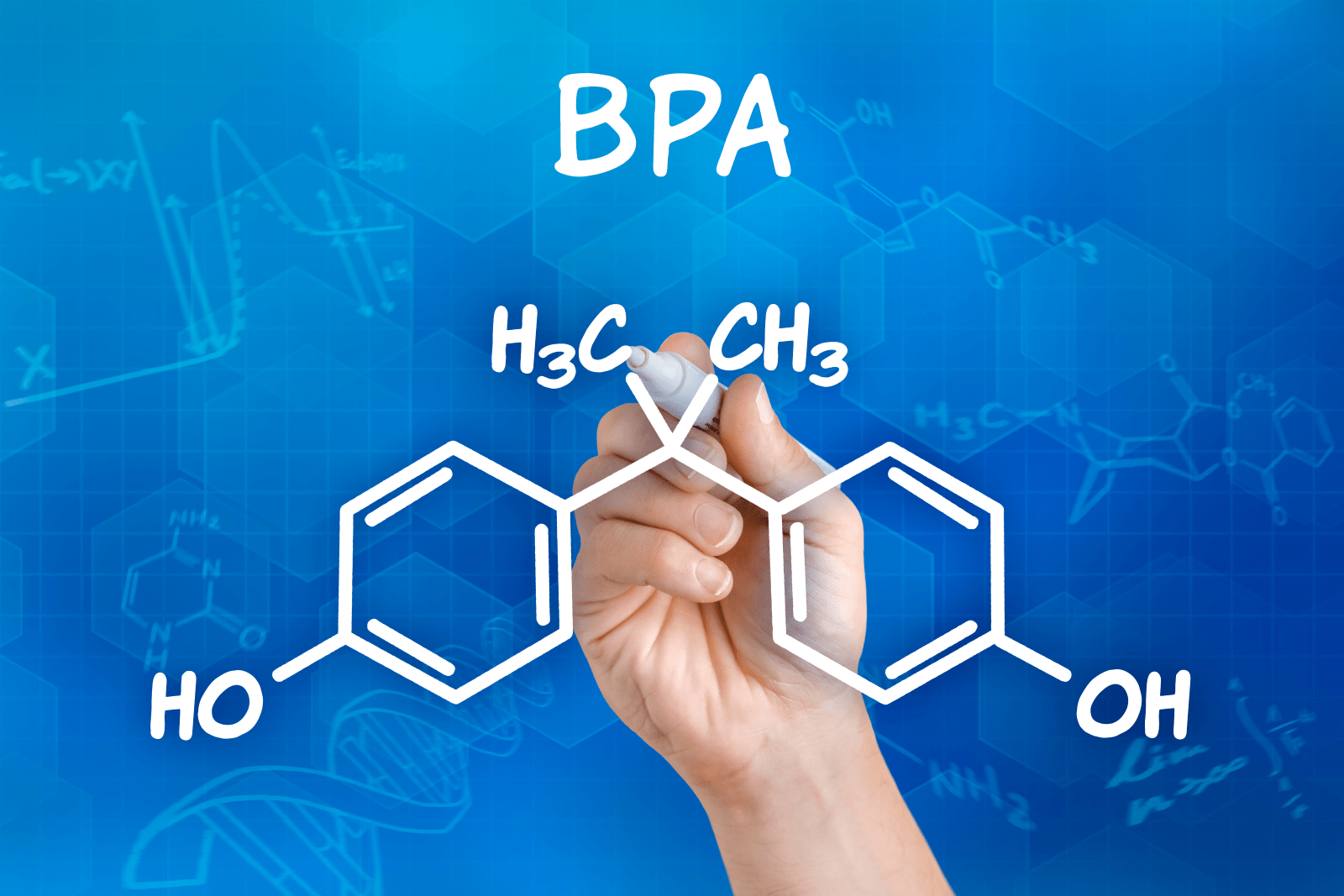As an Amazon Associate I earn from qualifying purchases.

From age-old traditional methods to the latest innovations, brewing a cup of coffee has gone through an evolution. One significant component of this evolution is coffee pods. Despite steady growth in coffee pod popularity, recent years have witnessed a surge in speculations regarding safety for regular consumption. An extensively debated context in this respect is whether coffee pods can potentially cause cancer. This may cause consumers to reconsider their choice of brewing methods and lean towards other options.
The fear most consumers harbor stems from two main factors: the materials utilized in coffee pod production and brewing procedure itself. For the unseasoned eye, coffee pods exude a charm of modernity and convenience. Simplistically, they are a neatly packaged version of our beloved beverage.
Alas, this veil of attractiveness hides a possible, contentious health concern. This concern has managed to give many coffee lovers sleepless nights, debating over the pros and cons of continuous usage of coffee pods. The primary query being- can your morning coffee pod lead to life-threatening diseases like cancer?
What are Coffee Pods?
The world over, billions of us rely on the potent punch of coffee to jumpstart our day. In recent years, a nifty little innovation called coffee pods has transformed the way we consume our beloved caffeine hit. But what precisely are these increasingly popular coffee pods? And do coffee pods cause cancer – a question that has been a buzzkill amongst coffee enthusiasts lately. Let’s explore.
Shaped somewhat like a mini-disc, a coffee pod is a small, sealed packet containing ground coffee beans. A unique packaging mechanism keeps the coffee fresh, maintaining the rich aroma and robust flavor that we treasure in a good cup of Joe. The pods are precisely portioned to brew a single serving of coffee, ensuring consistency in every sip.
These pods offer convenience, efficiency, and consistent taste, propelling them to near-ubiquity in households, offices, and even high-end coffee shops. In the hustle and bustle of modern life, popping a pod into a machine and having a flavorful cup of coffee at the ready instantly is quite the boon.
If you’re making your own coffee at home, there are a wide range of fantastic coffee makers that avoid using pods. It signals the end of the era where making a decent cup involved a number of steps, from grinding the beans to carefully measuring out the grounds and water.
The Evolution of Coffee Pods
In recent years, coffee enthusiasts worldwide have witnessed a remarkable transformation in the way they brew and enjoy their daily cup of Joe, thanks to the advent and evolution of coffee pods. These small, convenient capsules have taken the coffee industry by storm. They offer not only a quick and hassle-free brewing experience but a wide array of flavors.
The Birth of Coffee Pods
The story of coffee pods began in the early 20th century, with the invention of the espresso machine. However, the pods as we know them today did not emerge until the late 20th century. It was in 1976 when Eric Favre, a Swiss engineer, introduced the concept of a single-serve coffee pod. This groundbreaking idea laid the foundation for what would become a revolution in the coffee industry.
The Pioneering Nespresso Era
Nespresso, a brand synonymous with coffee pods, played a pivotal role in popularizing the concept. In 1986, they launched their first coffee pod system, offering a range of coffee varieties in small, airtight capsules. This innovation allowed coffee lovers to experience café-quality coffee in the comfort of their homes, heralding a new era of coffee convenience.
The Keurig Revolution
While Nespresso dominated the European market, Keurig emerged as the leader in North America with their K-Cup technology. Introduced in the late 1990s, K-Cups brought coffee pod technology to a broader audience. The ease of use and variety of flavors soon made K-Cups a household staple.
Alleged Cancer-causing Compounds in Coffee Pods

In recent years, a wave of speculation and worry centered around the question, “do coffee pods cause cancer?” has engulfed consumers and health enthusiasts. It is alleged that coffee pods contain some chemical compounds, which, when consumed over a prolonged period, may trigger cancer. But how valid are these claims? Let’s delve deeper into the subject and uncover the truth.
BPA Presence in Coffee Pods
Coffee pod enthusiasts seek to balance convenience and health-conscious choices. Concerns about the presence of Bisphenol A (BPA) in coffee pods have become increasingly prominent. Let’s delve into the topic of BPA in coffee pods, exploring whether these compounds pose any risks to health.
Understanding BPA
Bisphenol A, commonly known as BPA, is a chemical compound used in the production of certain plastics, including those used in the manufacturing of some coffee pods. BPA is known for its potential to leach into food and beverages, which has raised concerns among consumers.
BPA in Coffee Pods
Historically, some coffee pod manufacturers used BPA-containing plastics in the production of their pods. This raised concerns about the possibility of BPA leaching into the hot coffee during brewing.
In response to these concerns, many coffee pod manufacturers have transitioned to BPA-free materials in their pod designs. This shift addresses worries about BPA exposure and ensures safer consumption.
Addressing Health Concerns
No Direct Link to Cancer: It’s essential to clarify that there is no direct evidence linking BPA in coffee pods to cancer. Research on BPA’s health effects has been extensive, with most studies focusing on exposure through other sources like canned foods and plastic containers.
Regulatory Measures: Regulatory agencies such as the FDA have established safety guidelines for BPA levels in food and beverage packaging to minimize health risks. These guidelines aim to ensure that any potential BPA exposure remains well below levels of concern.
Minimal Contact Time: One factor to consider is the contact time between the coffee and the pod material. The brief exposure of coffee to the pod material during the brewing process typically results in minimal BPA transfer.
Choosing BPA-Free Coffee Pods
To minimize any potential risks associated with BPA, consumers can opt for coffee pods explicitly labeled as “BPA-free.” Many manufacturers proudly display this information on their packaging.
In addition to being BPA-free, some coffee pod brands also prioritize sustainability by using biodegradable or compostable materials. These eco-friendly options offer peace of mind for environmentally conscious consumers.
In summary, concerns regarding BPA presence in coffee pods have led to significant improvements in pod design and materials. While BPA has been used in some coffee pod manufacturing in the past, the industry’s transition to BPA-free materials has addressed these concerns. Importantly, there is no direct evidence suggesting that BPA in coffee pods is linked to cancer.
As a responsible consumer, you can choose BPA-free coffee pods and explore eco-friendly alternatives to ensure a safe and enjoyable coffee experience. By staying informed and making informed choices, you can continue to relish the convenience of coffee pods without compromising your health or peace of mind.
Acrylamide: A Concealed Source of Worry
Coffee lovers often seek to strike a balance between the pleasure of their daily brew and concerns about potential health risks. Acrylamide, a chemical compound formed during the coffee roasting process, has garnered attention in recent years. In this comprehensive guide, we will explore the presence of acrylamide in coffee pods, its implications for health, and whether it’s true that “do coffee pods cause cancer.”
Acrylamide is a natural byproduct that forms when certain foods, including coffee beans, undergo high-temperature roasting. This chemical reaction occurs when the amino acid asparagine interacts with reducing sugars.
Acrylamide Levels in Coffee
Variable Levels: The acrylamide content in coffee can vary depending on factors such as the coffee bean type, roast level, and brewing method. Darker roasts generally contain higher levels of acrylamide than lighter roasts.
In Coffee Pods: Acrylamide is present in coffee pods, as it is a product of the roasting process. However, the levels of acrylamide in coffee pods are not significantly different from those found in traditionally brewed coffee.
Addressing Health Concerns
Cancer Risk: The question often raised is whether acrylamide in coffee pods and coffee, in general, can cause cancer. It’s important to note that the link between acrylamide and cancer is not straightforward.
No Definitive Evidence: While studies have shown that acrylamide is a potential carcinogen, most research has focused on high-dose exposures, such as those in industrial settings, not typically found in daily coffee consumption.
Coffee’s Complex Chemistry: Coffee is a complex mixture of compounds, and its health effects are influenced by various factors, including antioxidants that may counterbalance any potential risks associated with acrylamide.
Regulatory Measures
FDA Guidelines: Regulatory agencies like the U.S. Food and Drug Administration (FDA) have set guidelines for acrylamide levels in foods, including coffee. These guidelines aim to minimize acrylamide exposure and ensure consumer safety.
Varied Responses: Coffee manufacturers have taken steps to reduce acrylamide levels in their products. Some employ roasting methods designed to mitigate acrylamide formation, while others focus on selecting beans with lower asparagine content.
Making Informed Choices
If you have concerns about acrylamide, you can make choices that align with your preferences and priorities. Opting for lighter roast coffee, which generally contains lower acrylamide levels, is one option.
Additionally, adjusting your brewing method can influence acrylamide levels. For instance, shorter brewing times and lower temperatures may result in lower acrylamide content in your cup of coffee.
In conclusion, the presence of acrylamide in coffee pods is a topic of discussion, but it’s crucial to understand the context and complexity surrounding this chemical compound. While acrylamide is formed during the coffee roasting process and is present in coffee pods, current evidence does not provide a direct link between coffee consumption, including coffee pods, and cancer.
As a coffee enthusiast, you can make informed choices by selecting coffee products that align with your preferences and priorities. Whether you choose coffee pods or other brewing methods, understanding the nuances of acrylamide in coffee allows you to enjoy your daily cup of coffee with peace of mind, knowing that it remains a beloved and safe beverage for millions of people around the world.
How Aluminum Affects Health
The manufacturing process of coffee pods has raised questions about the presence of aluminum and its potential health implications. In this comprehensive guide, we will explore the role of aluminum in coffee pod production, its safety, and whether it’s accurate to ask, “Do coffee pods cause cancer?”
Aluminum in Coffee Pod Manufacturing
Barrier Properties: Aluminum is commonly used in coffee pod manufacturing due to its excellent barrier properties. It acts as a protective layer, preserving the freshness and flavor of the coffee inside the pod.
Heat Resistance: Aluminum’s heat resistance is crucial during the brewing process, where hot water flows through the pod. It ensures that the pod remains structurally intact, preventing leakage or contamination.
Health Concerns
Potential Aluminum Exposure: Concerns arise from the possibility of aluminum leaching into coffee during the brewing process, especially when hot water interacts with the aluminum surface.
Aluminum and Health: Aluminum is a naturally occurring element found in the environment, food, and water. While high levels of aluminum exposure are associated with health issues, such as neurological disorders, it’s essential to understand the context.
Regulatory Guidelines: Regulatory agencies, like the FDA, have established strict guidelines to limit aluminum levels in food and beverage packaging materials. These guidelines ensure that aluminum exposure from such sources remains well below levels of concern.
Coffee Pods and Cancer

Addressing the Question: To address the question of whether coffee pods cause cancer, it’s important to note that the aluminum used in coffee pod manufacturing is typically considered safe when it complies with regulatory standards.
Limited Exposure: The contact time between hot water and the aluminum surface in a coffee pod is relatively brief. This minimizes the potential for significant aluminum leaching.
Cumulative Exposure: Aluminum exposure from coffee pods is just one of many potential sources in our daily lives. Aluminum intake is primarily determined by dietary factors, not occasional coffee consumption.
Making Informed Choices
Consumer Awareness: As a consumer, you can make informed choices. Check the packaging or manufacturer’s information to ensure that the coffee pods you choose comply with safety regulations.
Exploring Alternatives: If you have specific concerns about aluminum or prefer to minimize your exposure, consider exploring coffee pod brands that offer alternative materials, such as plastic or biodegradable options.
In summary, aluminum is a crucial component in the manufacturing process of coffee pods, serving as a protective barrier and ensuring heat resistance during brewing. Concerns about aluminum leaching into coffee have led to strict regulatory guidelines that safeguard consumer health.
As for the question, “Do coffee pods cause cancer?” the available evidence does not support a direct link between coffee pod consumption and cancer. The contact time between hot water and the aluminum surface is limited, and aluminum intake from occasional coffee pod use is minimal compared to dietary sources.
Ultimately, consumers can make choices that align with their preferences and concerns, whether that involves selecting coffee pods that meet safety standards or exploring alternative materials. The key is to enjoy your coffee with confidence, knowing that coffee pods, when used responsibly, remain a convenient and safe way to savor your daily brew.
Using Coffee Pods
Coffee pods have become a staple in the lives of caffeine enthusiasts, offering a quick and convenient way to enjoy a freshly brewed cup of coffee. If you’re new to the world of coffee pods or looking to enhance your brewing skills, this comprehensive guide will walk you through the process while addressing common concerns like “do coffee pods cause cancer.”
Choosing the Right Coffee Pods
- Selecting Your Coffee: The first step to brewing a delightful cup of coffee with pods is choosing the right coffee flavor or blend that suits your taste. There’s a wide variety available, from robust dark roasts to milder medium roasts and even flavored options.
- Checking Compatibility: Ensure that the coffee pods you’ve selected are compatible with your coffee machine. Different machines require specific pod types, so it’s essential to check the manufacturer’s recommendations.
Brewing Your Coffee
- Prep Your Machine: Before you begin, make sure your coffee machine is clean and in proper working condition. Cleanliness is vital for maintaining the quality of your brew.
- Insert the Pod: Open the coffee pod packaging and place it into the designated pod holder or chamber of your coffee machine. Make sure it fits snugly.
- Select Brew Size: Many coffee machines offer options for selecting your desired brew size. Choose the size that matches your preference, whether it’s a single shot or a larger cup.
- Brew Your Coffee: Start the brewing process by pressing the brew button. Your coffee machine will pierce the pod, allowing hot water to flow through and extract the flavors from the coffee grounds within.
- Enjoy Your Coffee: Once the brewing process is complete, your freshly brewed coffee is ready to enjoy. Serve it hot, and customize it with your preferred additives, such as cream, sugar, or flavored syrups.
Cleaning Up
- Dispose of the Used Pod: After brewing, safely eject the used coffee pod from the machine. Many pods are recyclable or compostable, so be sure to dispose of them properly according to the packaging instructions.
- Clean Your Machine: Regularly clean your coffee machine, especially the pod holder or chamber, to prevent any residue buildup. A clean machine ensures a better-tasting brew.
The Coffee Capsule & Cancer Connection
While apprehension around coffee capsules and their association with various health concerns prevails, it’s worth noting that in most cases, moderate coffee consumption does not pose a health risk. Nevertheless, it is vital to stay informed. If you are particularly worried about the alleged cancer-causing compounds in coffee pods, consider alternatives. Plunge into fresh whole coffee beans, and crush them at home. It works as a perfect antidote to any fear around coffee and cancer.
The alleged cancer-causing compounds in coffee pods have borne a trend of worrisome conversation around the coffee-drinking community. Regardless, the definitive cause-and-effect relationship between coffee pods and cancer remains largely unsubstantiated. The risk lies majorly in excessive consumption and consistent exposure to these compounds, not in moderate, regular coffee drinking.
The significant takeaway lies in the wisdom of ‘moderation.’ Excessive consumption of anything may prove harmful, and coffee pods are not an exception. Additionally, consumers must adhere to informed choices, giving preference to brands embracing BPA-free, aluminum-free and pesticide-free manufacturing practices.
Balancing the Argument: The Anti-Cancer Properties of Coffee

Coffee pods have long been cherished for their convenience and rich flavors, but recent studies have unveiled an intriguing aspect of coffee that goes beyond the morning caffeine boost. In this in-depth exploration, we’ll delve into the emerging research on the potential anti-cancer properties of coffee pods, shedding light on the question: “Do coffee pods cause cancer?”
The Power of Coffee
A Complex Brew: Coffee is a complex beverage containing over a thousand bioactive compounds. Among these compounds are antioxidants, which play a crucial role in safeguarding cells from oxidative damage.
Antioxidants in Coffee: Coffee is one of the most significant sources of antioxidants in the Western diet, and it surpasses many fruits and vegetables in terms of antioxidant content.
Coffee and Cancer Prevention
Reducing Cancer Risk: Recent scientific investigations have revealed that the consumption of coffee, including coffee pods, may be associated with a reduced risk of certain types of cancer, including liver, colorectal, and endometrial cancers.
Liver Cancer Protection: Studies have shown that coffee consumption is linked to a decreased risk of liver cancer, particularly in individuals with chronic liver diseases such as cirrhosis and hepatitis.
Colorectal Cancer: Research suggests that regular coffee consumption may lower the risk of colorectal cancer, with one potential mechanism being coffee’s impact on gut bacteria and inflammation.
Endometrial Cancer: Coffee has also demonstrated a potential protective effect against endometrial cancer, particularly in postmenopausal women.
Understanding the Mechanisms
Anti-Inflammatory Effects: Coffee’s anti-inflammatory properties are believed to play a pivotal role in cancer risk reduction. Chronic inflammation is a known risk factor for cancer development, and coffee’s compounds may help mitigate this risk.
Metabolic Impact: Coffee may influence various metabolic processes, such as insulin sensitivity, which can affect cancer risk. Improved insulin sensitivity may help reduce the risk of certain obesity-related cancers.
Moderation is Key
Balancing Act: While emerging research is promising, it’s essential to maintain a balanced perspective. Excessive coffee consumption or the addition of high-calorie, sugary additives can negate the potential benefits.
Individual Variability: It’s important to remember that individual responses to coffee can vary. Some people may experience adverse effects from excessive caffeine intake, so moderation remains crucial.
In conclusion, the emerging research on the potential anti-cancer properties of coffee pods adds another layer of fascination to this beloved beverage. While it’s becoming increasingly clear that coffee, with its rich antioxidant content and anti-inflammatory effects, may play a role in reducing the risk of certain cancers, it’s essential to consume coffee in moderation and maintain a balanced diet and lifestyle.
So, to address the question, “Do coffee pods cause cancer?” the current evidence suggests that coffee pods, like other forms of coffee, do not cause cancer and may even offer some protection against certain types of cancer. Enjoying your favorite coffee pod brew can be a delightful and potentially health-enhancing part of your daily routine.
The Verdict – Do Coffee Pods Cause Cancer?
When approaching the “do coffee pods cause cancer” conundrum, we must remember that no single food or beverage causes or prevents cancer. The risk of developing cancer constitutes a complex interplay of multiple factors, including genetics, diet, lifestyle choices, and environmental exposures.
While it is valid to scrutinise the potential health risks associated with coffee pods, to date, there’s no definitive evidence that they contribute to an increased risk of cancer.
Either way, if you’ve digested this article and all of the information available and are still concerned about using Coffee Pods, there are a great deal of fantastic single-serve coffee makers without pods on the market
Conclusion
The assertion “coffee pods cause cancer” is not supported by robust scientific evidence. The trace amounts of harmful compounds like acrylamide, BPA, and aluminium in coffee pods are unlikely to pose a significant cancer risk. It’s also noteworthy that coffee carries many health benefits, including possible anti-cancer properties.
Safety in food consumption arises from balanced diets, diverse in nutrients and rich in organic produce, coupled with a healthy lifestyle. While we shouldn’t dismiss the plausible health implications of any product, it’s crucial to filter information through the lens of peer-reviewed research, expert medical advice, and common-sense dietary habits.
It would be hasty and imprecise to blame our beloved coffee pods entirely for causing such an intricate ailment as cancer. So, while we continue enjoying the technology that makes our beloved beverage more accessible and convenient, let’s embrace conscious consumption, awareness, and an overall balanced lifestyle as the keys to our health and wellbeing.
Note: While this investigation focused on the question, “do coffee pods cause cancer?” it is essential not to lose sight of other potential environmental and health concerns related to coffee pod usage, particularly around waste management and More research and thoughtfulness are required on those fronts as imperative future topics of discussion.
Amazon and the Amazon logo are trademarks of Amazon.com, Inc, or its affiliates.